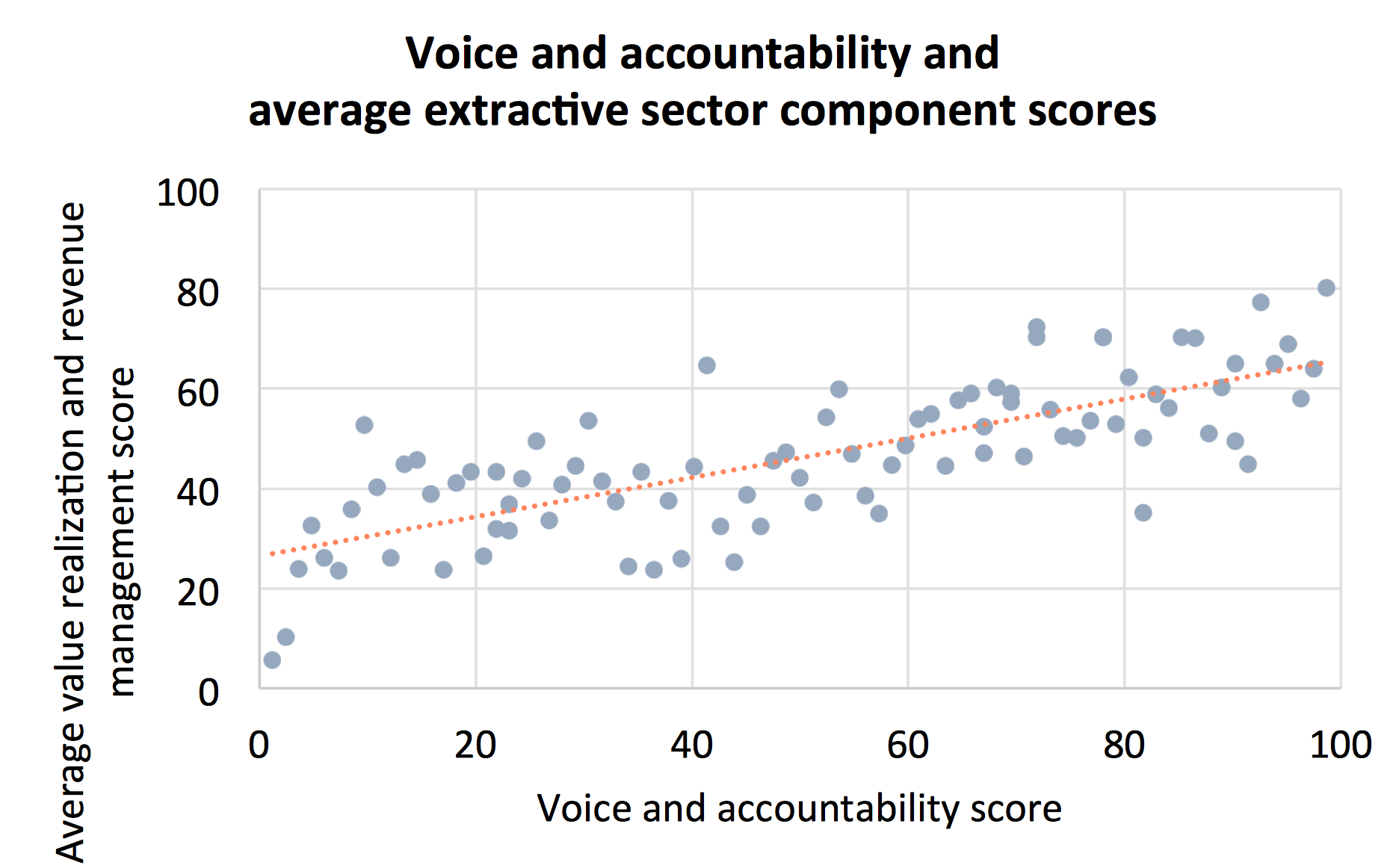
Civic Space a Key Concern as Resource Governance Index Makes Washington Debut
It has been three months since the Natural Resource Governance Institute released the 2017 Resource Governance Index (RGI). Results have stoked debate in many of the 81 countries where extractive sectors were assessed.
The fundamental importance of civic space to resource governance has been one key discussion point and will be a focus at next week’s Civil Society Policy Forum, part of the World Bank and International Monetary Fund Annual Meetings in Washington, D.C.
On 12 October, NRGI president and CEO Daniel Kaufmann will host an interactive session, “Diagnosing Governance Challenges in the Extractive Sector: The Resource Governance Index and Beyond.” The event follows the September release of updated Worldwide Governance Indicators, an important input to the Resource Governance Index.
The panel convenes members of international institutions and civil society, including United Nations Economic Commission for Africa executive secretary Vera Songwe and Oxfam America senior policy advisor for extractive industries Isabel Munilla. The high-level gathering should stimulate a vigorous debate on promoting better development outcomes through enhanced voice and accountability.
Importantly, the Resource Governance Index draws attention to the fact that transparency does not always go hand in hand with protection of civic space. Countries such as Angola, Azerbaijan, Iraq and Vietnam all fail to promote citizen voice and government accountability while obtaining good transparency scores.
Why is this important? Because transparency, while a necessary ingredient of accountability and improved governance, cannot bring about these changes on its own. Without meaningful action and timely disclosure, we end up with “zombie transparency.” It produces the veneer of good governance when in actuality the fundamentals are missing. It can also undermine confidence in transparency, playing into the hands of those who want to keep things secret. Citizens must also be free to act on the information that is made available. This is substantiated by the Resource Governance Index results, which show that “voice and accountability” has a strong correlation with better scores in extractives-specific index components—those that cover issues such as licensing, taxation, local impacts, state-owned enterprises and revenue management. Civil society actors, media, investors and others need access to information to inform critical dialogue and to hold governments and extractives companies accountable.
 The chart above shows the average value of value realization and revenue management component scores for the 89 country-sector assessments in the 2017 Resource Governance Index.
The chart above shows the average value of value realization and revenue management component scores for the 89 country-sector assessments in the 2017 Resource Governance Index.
Building on Resource Governance Index findings, NRGI and partners are working on a pipeline of research probing challenges that resource-rich countries face. So far, NRGI has explored two phenomena:
- Forty-four percent of known reserves of minerals used in clean energy are in countries with “weak” or “poor” Resource Governance Index scores. Weak governance, including a lack of public accountability, lowers the chances that governments will adopt policies and practices to raise and manage revenues in ways that will benefit citizens. Weak governance also adds to concerns about extraction’s negative environmental and social consequences.
- Over USD 1.2 trillion in revenue is raised in countries with unsatisfactory scores in the Resource Governance Index. Overall, information on resource revenue in the public domain is incomplete and non-standardized. Across countries where over 50 percent of revenues come from extractives, almost all scored either weakly (45-60 points out of 100) or poorly (30-45 out of 100) in the Resource Governance Index.
We invite all those registered to attend the forum and the meetings to participate in “Diagnosing Governance Challenges in the Extractive Sector: The Resource Governance Index and Beyond.” Join the Twitter conversation using #AMCSO17 and #ResourceGovernanceIndex.
Kaisa Toroskainen is a research and data officer with the Natural Resource Governance Institute (NRGI).
